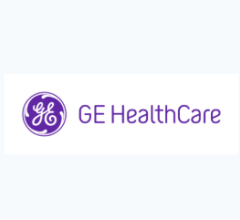January 13, 2015 — A 2013 survey of radiation oncologists indicates that they would like more formal recommendations and guidance in order to improve the peer review process, according to a study published in the January-February 2015 issue of Practical Radiation Oncology (PRO), the clinical practice journal of the American Society for Radiation Oncology (ASTRO).
The study, “Practice patterns for peer review in radiation oncology,” analyzed the results of a radiation oncology-specific, peer review survey conducted by ASTRO in 2013. The goal of the survey was to describe the frequency and content of peer review activities; to determine which peer review functions directly evaluate medical decision-making and technical expertise; to conduct an exploratory analysis of factors and demographics that impact peer review and to determine ASTRO’s physician members’ interest in additional guidance on peer review.
Designed by ASTRO’s Health Services Research Committee, the survey included eight demographic and 25 peer or practice review questions. The survey was distributed to all of ASTRO’s physician members and members-in-training worldwide (n=5,674). Of the 572 respondents, 93 percent (532) were practicing radiation oncologists and 7 percent (40) were residents, trainees or other. The respondents were divided evenly between academic and private practices or other. Seventy-eight percent (446) of respondents were from the United States; 5 percent (29) were from Canada and 17 percent (97) were from other countries.
Eighty-three percent (475) of respondents reported being involved in peer review and 75 percent (435) of respondents were comfortable with their practice’s current peer review program. Eleven percent (63) of respondents reported being uncomfortable with their program and 6 percent (40) responded that their working environment did not encourage peer review.
Respondents were asked when peer review was conducted at their institution. The results demonstrated that respondents were involved in peer review either during the first week of treatment or prior to initiation of treatment. Eighty-three percent (475) performed peer review during the first week of radiation therapy treatment and 65 percent (372) were involved in peer review prior to the beginning of treatment, also known as prospective peer review.
Respondents were asked what, if any, changes to patient case management were made as a result of peer review. Eighty-seven percent (498) of respondents made changes to fractionation; 82 percent (469) made adjustments to dose; 70 percent (400) altered contouring and 49 percent (280) altered the treatment intent. Physicians reported that 7 to 10 percent of patient cases were changed as a result of the peer review process.
Finally, respondents were asked if they supported the development of additional recommendations and guidance on peer review. Seventy-four percent (423) of respondents expressed interest in formal guidelines and recommendations from ASTRO to strengthen and improve the peer review process.
“Peer review is an important quality assurance process that facilitates physicians in constructively evaluating each other’s work, and our survey focused on medical decision making and technical expertise,” said David J. Hoopes, M.D., lead author of the study and a radiation oncologist at the Joint Radiation Oncology Center at Travis Air Force Base in Travis, California. “This study confirms that peer review is a common practice, however, there is wide variation in how it is performed. Additional research and evaluation of peer review are necessary to provide formal recommendations and guidance, including tools and workflow, to improve peer review processes, which will ultimately improve the efficacy and safety of radiation therapy for our patients.”
For more information: www.astro.org


 January 30, 2026
January 30, 2026 









